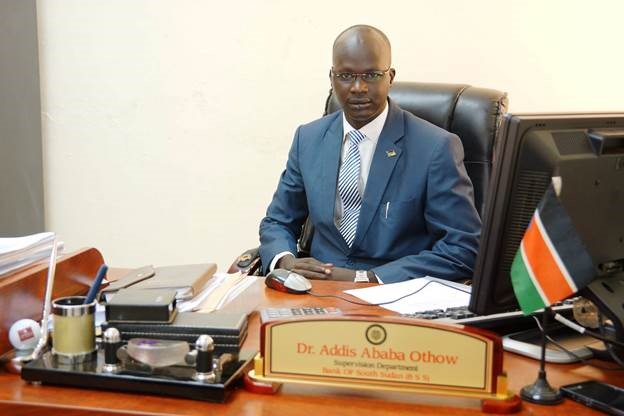
By Alan Clement
The Bank of South Sudan (BoSS) has introduced new measures to regulate the cross-border movement of physical cash.
The new measures issued in a new directive on August 20, 2025, were introduced as part of BoSS’ efforts to curb illicit financial flows and safeguard the integrity of the country’s financial system as well as bolster monetary policy enforcement.
“To combat illicit financial flows, promote transparency in cross-border transactions, and support effective implementation of monetary and exchange rate policy, the Bank of South Sudan hereby issues this circular governing the cross-border movement of physical cash,” the Central Bank stated.
The directive, issued under the Bank of South Sudan Act, 2011 (Amended 2023), the Foreign Exchange Regulation Act, 2012, and the Anti-Money Laundering and Counter-Terrorism Financing Act, 2012, applies to all individuals, financial institutions, money transfer operators, licensed forex bureaus, and border control authorities.
Under the new regulation, any person; citizen or foreigner entering or leaving South Sudan with USD 10,000 or more or its equivalent in another currency must declare the funds using an official Cross-Border Currency Declaration Form (CB-CDF) available at border posts, airports, and entry points.
Financial institutions, including commercial banks, licensed forex bureaus, and money transfer operators (MTOs), face even tighter scrutiny as they must seek prior approval from BoSS for any cash movement exceeding USD 50,000 and submit monthly reports to the Directorate of Supervision and Financial Stability. Institutions are also required to maintain detailed records of all cross-border cash transactions.
The Bank has also prohibited practices such as failure to declare large sums, structuring transactions to avoid reporting, use of unlicensed couriers, and movement of counterfeit or suspicious funds. Border control authorities and security agencies have been mandated to enforce the new rules, seize undeclared cash, and report violations to BoSS and the Financial Intelligence Unit (FIU).
Non-compliance to the new directive will incur penalties which include seizure and forfeiture of undeclared funds, suspension or revocation of institutional licenses, financial penalties, and possible criminal prosecution under the Anti-Money Laundering and Counter-Terrorism Financing (AML/CFT) Act of 2012.
The central bank emphasized that the circular aligns with international standards, including the Financial Action Task Force (FATF) Recommendation 32 and regional guidelines under Eastern and Southern Africa Anti-Money Laundering Group (ESAAMLG), EAC, IGAD, and COMESA.
The regulation underscores South Sudan’s efforts to strengthen financial governance, enhance transparency, and integrate with global anti-money laundering protocols. Stakeholders across the financial and security sectors are expected to comply fully with the new measures.




